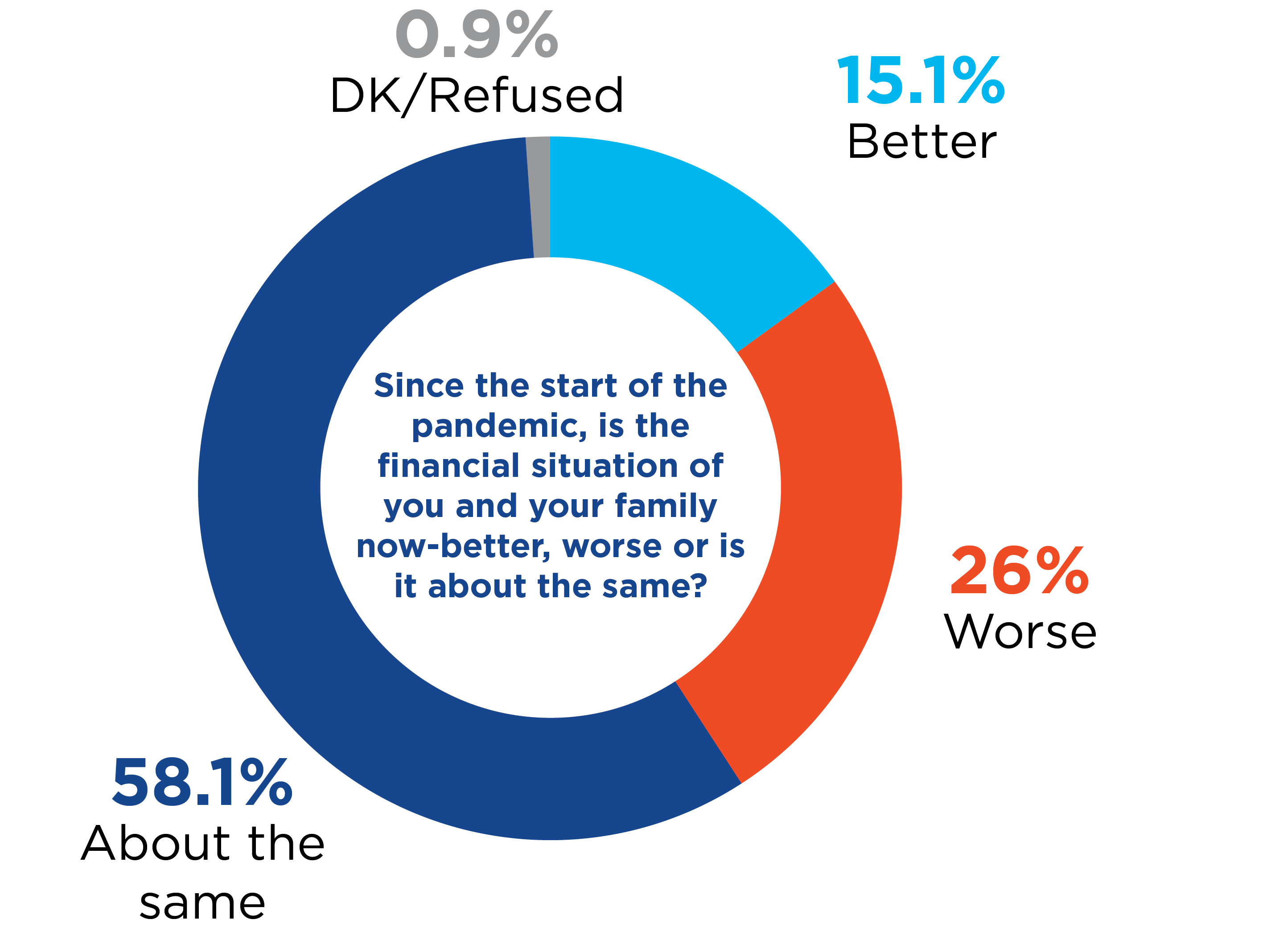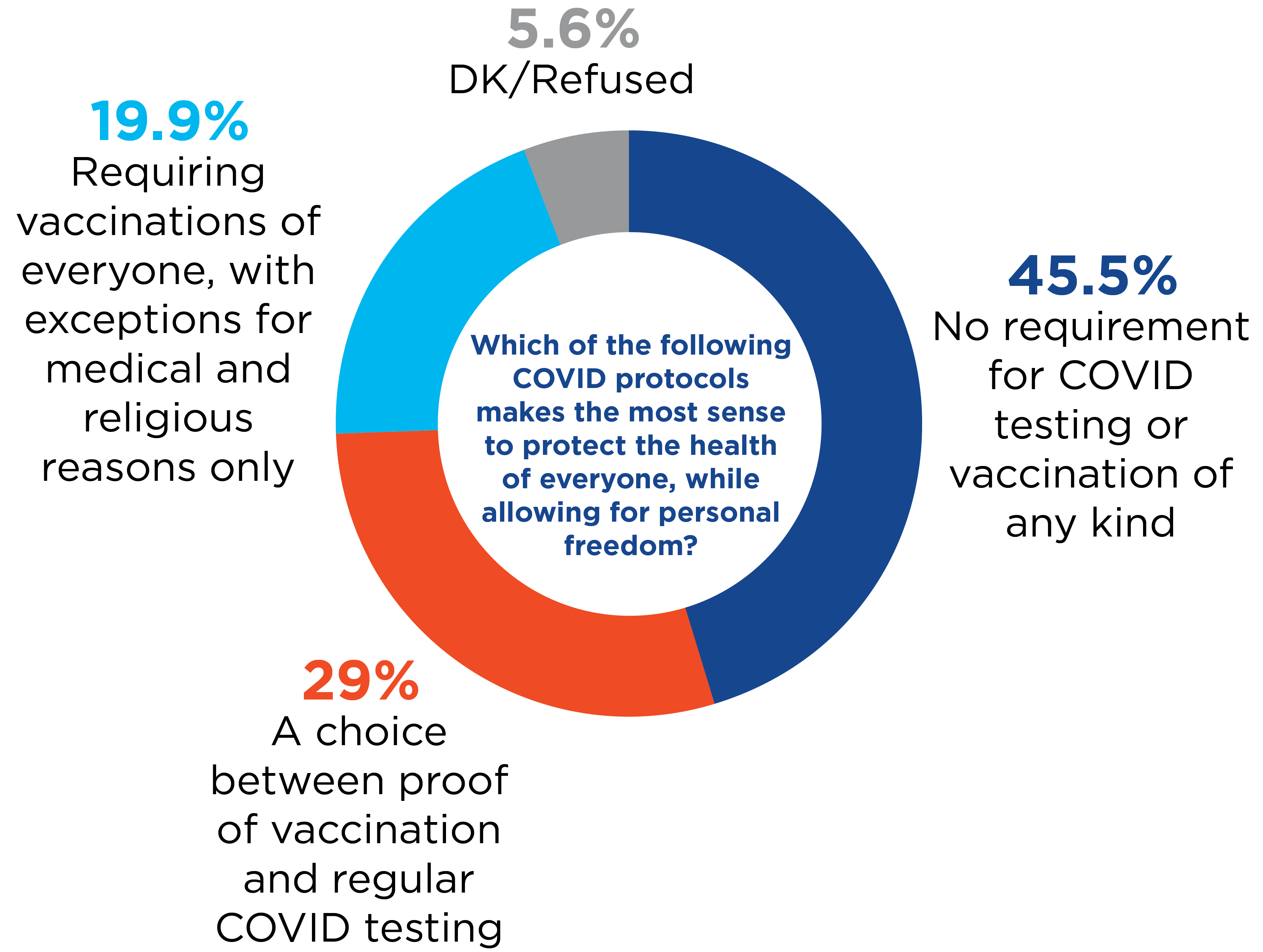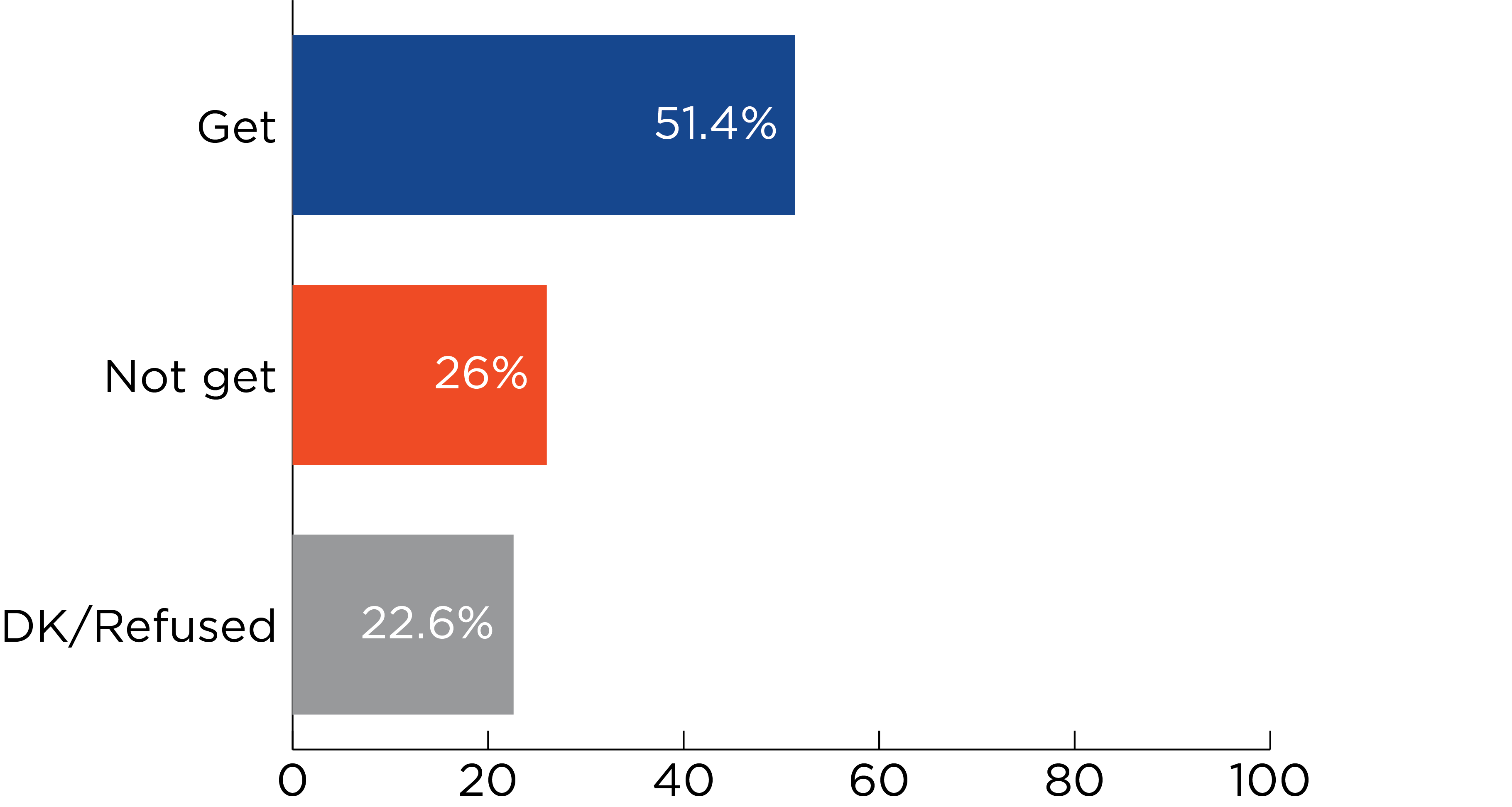Turning our attention to issues related to the COVID-19 pandemic, we were interested in identifying how the pandemic has affected Idahoans. We asked whether their financial situation since the start of the COVID-19 pandemic was better, worse, or about the same. While a clear majority (58%) said their financial situation was about the same, over a quarter of Idahoans (26%) reported that their financial situation had worsened. Only 15% said it had improved. The pandemic impacted long-term residents to a greater extent than newcomers, with 20% of newcomers being negatively impacted compared to 27% of long-term residents.

The COVID-19 pandemic has affected Idahoans in many different ways. A quarter (25%) said they had trouble paying their bills as a result of the pandemic, while 15% reported receiving food from a food bank or charitable organization. Additionally, 11% said they received unemployment benefits. As one might expect, these effects were most likely to be experienced by lower income households (<$50,000 a year) and Idahoans who were unemployed, temporarily laid off, or have disabilities.
Businesses, organizations, and public events have had to navigate various public health and safety issues during these uncertain times and much attention has been paid to what, if any, vaccination or testing requirements they should implement. Among various approaches, including no vaccination requirements of any kind, a choice between vaccination or regular testing, or required vaccinations, we asked Idahoans which option they felt best balanced public health with personal freedom.
The most frequent response (46%) was no requirement for COVID testing or vaccinations of any kind. A little less than a third (29%) support there being a choice between proof of vaccination and regular COVID testing. Requiring vaccinations of everyone, with exceptions allowed only for medical or religious reasons, received the least amount of support with 20%. There is a strong split between party identifications, with Republicans overwhelmingly favoring no requirement of any kind (63%), while Independents are split between no requirement (41%) and a choice between vaccination or testing (35%) and Democrats are split between requiring vaccinations (46%) and a choice between vaccination and testing (37%).

Despite a strong overall preference for no requirement for testing or vaccinations among Idahoans, when asked what they would tell friends or family about whether or not to get the COVID vaccine, a majority (51%) said they would advise them to get the vaccine. A little over a quarter (26%) said they would advise them not to get the vaccine, while 23% either did not know or refused to say. Once again there is a clear party split, with 82% of Democrats saying they would recommend the vaccine compared to 58% of Independents and 36% of Republicans. Nearly a third of Republicans (29%) refused to answer the question, compared with 20% of Independents and only 6% of Democrats.

In order to get an idea of how well Idahoans are coping, we once again asked how many days in the past week they had felt depressed or lonely. About 63% of Idahoans reported feeling depressed less than a day or not at all over the previous week, while 72% reported feeling lonely less than a day or not at all. Conversely, 8% report feeling depressed 5-7 days in the past week, while 6% feel lonely 5-7 days a week. Once again, both figures constitute an improvement over last year’s results.